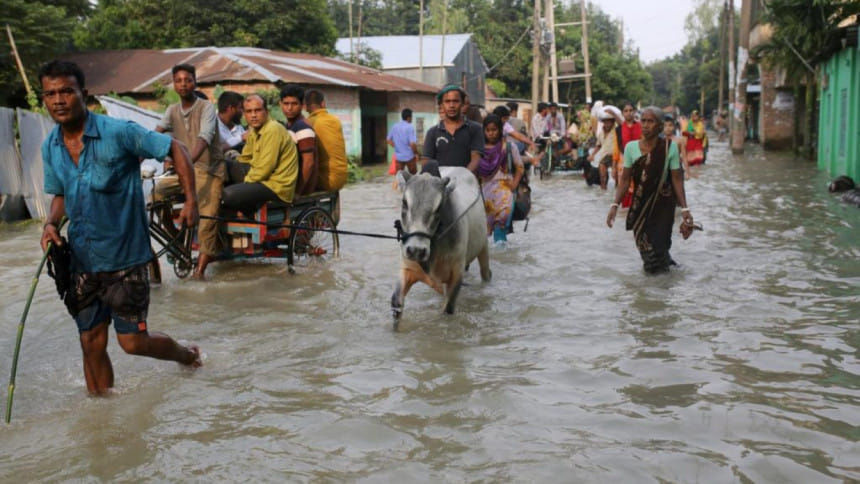Bangladesh doesn’t need new pilot projects to tackle climate change

Over the last decade, government agencies, civil society bodies and the private sector have initiated literally hundreds of pilot projects to deal with climate change-related issues, ranging from mitigation and adaptation to loss and damage. For every aspect of climate action, someone, somewhere has already implemented pilot projects that have resulted in significant lessons on combating climate change.
Therefore, I would like to propose to both the government and development partners that, instead of trying to identify gaps in what is being done and then proposing a pilot project to address said gap, we focus on scaling up the solutions that have come out of all the successful pilot projects of past, and that we take a longer-term programmatic approach to scale up and scale out.
Let me explain what I mean.
Scaling up entails taking the lessons from successful projects and including them into national planning, such as the ninth Five-Year Plan (9FYP), which is due to be prepared by the Planning Commission very soon. Scaling out means replicating the successful pilot projects at many new locations around the country.
This applies to government ministries and departments as well as NGOs and the private sector actors, for which a coordination mechanism will be needed to set up, similar to the coordination of Sustainable Development Goals (SDGs) under the Prime Minister's Office (PMO). Indeed, one option to consider might be to make it a part of SDG 13 (Climate Action) coordination.
Another aspect of this new way of focusing on scaling up and scaling out is to bring in significantly larger amounts of funding, from the government's own budget as well as from development partners such as the World Bank and Asian Development Bank (ADB). This means moving away from a project-by-project approach with budgets of a few tens of millions of dollars per project, which has a higher transaction cost and is too slow given the urgency of climate actions.
The good news is that this approach is fully compatible with the fact that Bangladesh is set to graduate from the Least Developed Country (LDC) status in 2026 and will no longer be eligible for grant-based bilateral funding from developed countries.
The second bit of good news is the fact that most of the relevant stakeholders in Bangladesh, both in government and outside of the government, are by now equipped enough to move to a whole-of-society approach to tackle climate change.
The third bit of good news is the network of all the relevant universities and research institutions working on different aspects of tackling climate change under the umbrella of the Gobeshona Initiative, which is now well able to generate knowledge for all the other actors to enable them to take the necessary actions going forward.
Finally, let me mention some top-level actions by some key ministries within the government as well as the NGOs.
The first and most important ministry is the finance ministry, which has already established the climate change budget within the national budget. This needs to be expanded and it must be ensured that the expenditure is tracked.
The other two important ministries are water resources and agriculture, which are where most of the adaptation-related activities will have to be handled.
The education ministry must ensure that climate change is included in the national curriculum, the foreign ministry must be focused on climate diplomacy, the LGRD ministry must track local climate actions, and the environment ministry must provide support to all the other ministries.
For the mitigation agenda, both the energy and industries ministries are most relevant.
For loss and damage, the disaster management ministry would be most relevant.
At the same time, the private sector has a major role to play in promoting renewable energy as well as insurance for loss and damage.
Finally, our civil society also has a critical role to play in scaling out the successful examples of Locally Led Adaptation (LLA), in which Bangladesh is already leading the world. A national platform on LLA is already under development, starting from the divisional level.
In conclusion, Bangladesh has all the data needed to take the programmatic approach to tackle climate change. By both scaling up and scaling out the lessons learnt from the pilot projects, the country can deal with climate change with the urgency that is required.
Dr Saleemul Huq is director of the International Centre for Climate Change and Development (ICCCAD) at Independent University, Bangladesh (IUB).

 For all latest news, follow The Daily Star's Google News channel.
For all latest news, follow The Daily Star's Google News channel. 



Comments